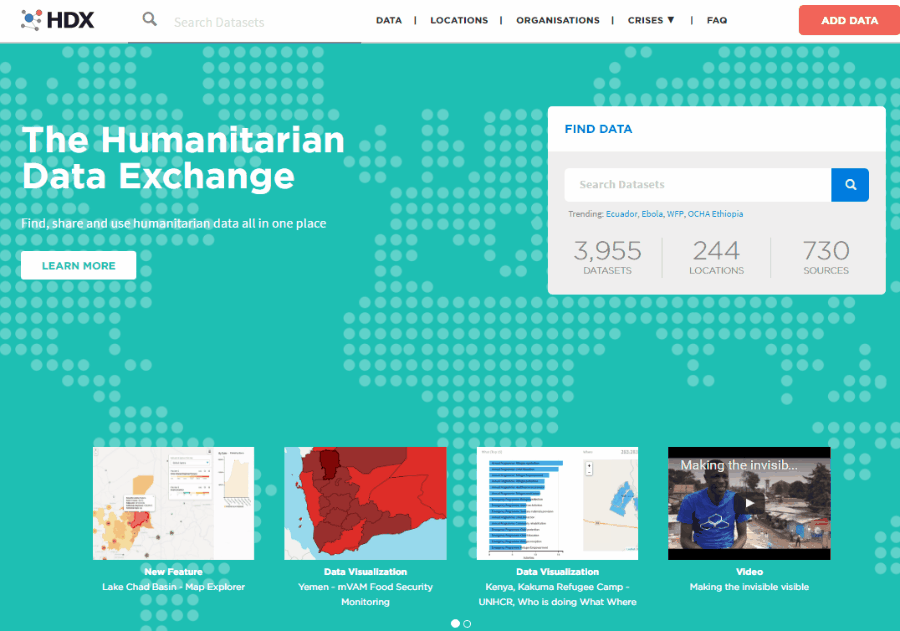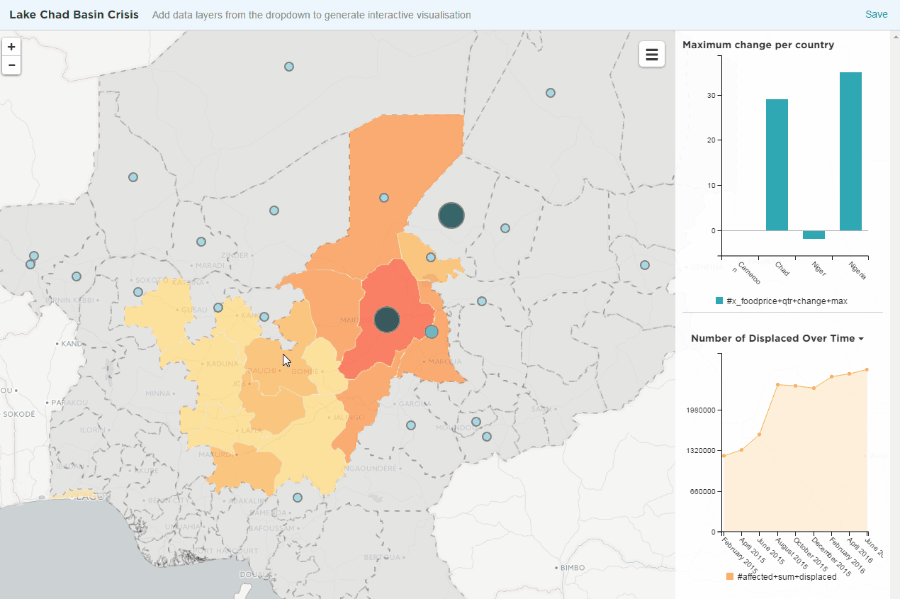Share
We are excited to announce that the Humanitarian Data Exchange (HDX) is coming out of beta. We first introduced HDX at the Open Knowledge Festival in Berlin in July 2014. Two years, 4,000 datasets, and 180,000 users later, we think it is fitting to announce this new milestone at the World Humanitarian Summit in Istanbul.
New Features
HDX 1.0 includes the following improvements:
- A new homepage that showcases the visuals created from data shared by the 200+ organizations using HDX.
- A new domain name – humdata.org – that is aligned with our @humdata Twitter handle.
- A map explorer that enables users to visualize several datasets at once; this early version is focused on the crisis in the Lake Chad Basin in West Africa.
Agile Development
These improvements follow the many upgrades we have made over the past two years. A few highlights include:
- Designing a streamlined process for sharing data that allows users to bulk upload files and share directly from Google Drive and Dropbox.
- Enabling the preview of geospatial datasets so that users can quickly see the location of rivers, roads and hospitals on a map.
- Migrating the common operational datasets (CODs) from HumanitarianResponse.info so that users can find humanitarian data in one place.
The HDX Roadmap
We have big plans for scaling HDX into an even more robust platform. We will continue engaging users every day and encouraging more organizations to join and share their data. We will also add new technical features, including:
- Improving the map explorer by (semi-) automating how datasets are joined to create a dynamic overview of a crisis.
- Integrating the HXL standard into our infrastructure so that data with HXL-tags can be visualized with the click of a button.
- Adding a ‘freshness’ marker to datasets so that users can quickly tell if the data is being maintained.
Thank you
A special thanks to the community of data contributors and users who have made HDX into the place to find humanitarian data. We believe that data, used well, can help people in their daily lives. We look forward to working with you to make this happen in the humanitarian sector.

